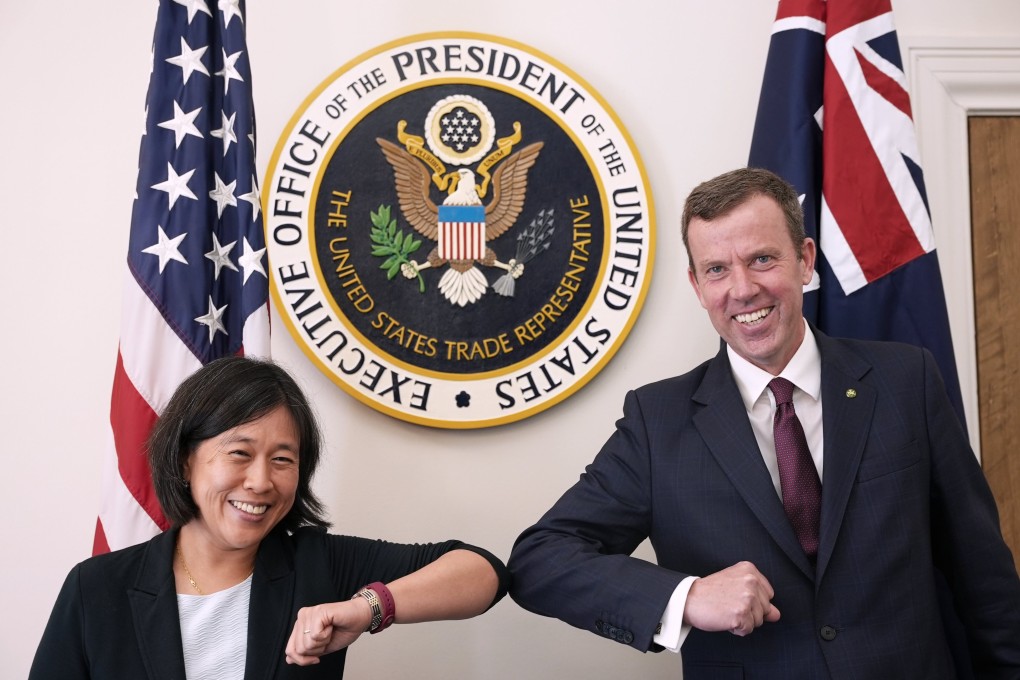US-China trade growth has Australia asking whether WTO can stop ‘economic coercion’
- Wine, coal and beef exports from US to China are now far greater than those from Australia – a shift driven in large part by the geopolitical dispute between Beijing and Canberra
- Critics accuse Washington of doing little to help Australia in its China conflict, as American exporters cash in on increased demand amid supply shortages

Despite vowing to support its ally, Australia, and take a stand against China for perceived economic coercion, the United States has done little to advance its commitment amid a lack of formal mechanisms and international trade rules to facilitate this strategy.
The latest data released by China’s customs administration, for July, shows that Australia did not export any coal to China for the eighth month in a row, while the US sold 636,000 tonnes of coal worth US$117 million. Although the US’s July exports of coal were less than in June, overall US exports to China remained on an upward trajectory.
American exporters have also been selling much more bottled wine to China than Australia has. In July, the US sold China nearly US$3.5 million worth of wine in containers of up to two litres, while Australia sold about US$400,000 worth of the product.
Beef is the latest to join the list of exports the US taking a lead on at the expense of Australia.